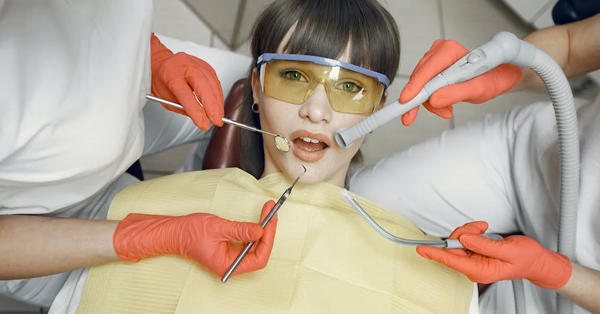Cosmetic and Reconstructive Surgery: What Can An Oral Surgeon Do to Help?
The structures of your face and jaw perform a variety of functions. Ideally, the arrangement of bones and soft tissues allows you to eat, breathe, and talk effortlessly. These structures also provide your face with its characteristic contours and appearance. Whether an injury or medical condition has harmed these structures and reduced their functionality, or you simply would like to give your face a new, preferred look, you may see substantial benefits from cosmetic or reconstructive oral surgery. Let's examine these forms of surgery to discover what an oral surgeon might do to give you a better quality of life.
Reconstructive Oral Surgery vs. Cosmetic Oral Surgery
The difference between reconstructive oral surgery and cosmetic oral surgery lies mainly in the result you wish to achieve. Reconstructive oral surgery focuses on procedures that correct damage and functional abnormalities. When expertly performed, reconstructive oral surgery can help you speak more clearly, chew more effectively, experience less pain or stiffness from structural alignment errors, or restore tissue lost in an accident or previous surgery.
Cosmetic oral surgery focuses on improving the aesthetics of your oral and facial structures. For example, an oral surgeon can change the shape or size of your jaw, bringing the jawbone forward or making it recede for a more attractive facial balance. An oral surgeon has the expertise to perform a variety of procedures to improve both the looks and the function of your teeth.
Conditions and Challenges Treated by Cosmetic and Reconstructive Oral Surgery
Depending on your individual needs, you may schedule either or both forms of oral surgery to address different conditions and challenges. Common problems tackled by reconstructive oral surgeons include:
- Malocclusion (abnormal bite) - This problem typically stems from an abnormal jaw position and/or uneven tooth wear.
- Diseased or impacted teeth - A hopelessly decayed, infected, or impacted tooth may threaten your comfort and health.
- Broken or weakened teeth - Root canal therapy or tooth fractures can leave the affected teeth in a fragile state while making them vulnerable to future infections.
- Palate issues - Deformities such as a cleft palate may call for surgical reconstruction.
- Jaw or facial trauma - Auto accidents and other crises can shatter bones in your jaw and face, making normal jaw function impossible.
Cosmetic surgeons can address some of the same issues, assuming that those issues affect your appearance as well as your oral and dental function. These specialists typically deal with:
- Chipped or broken teeth - Even if such teeth don't suffer from any deeper damage or hurt your chewing ability, they may make you self-conscious to smile or talk in public.
- Overbites and underbites - A misaligned jaw may make you unhappy with your looks, even when it doesn't seriously affect your ability to speak or eat.
- An oversized or undersized lower jaw - Even a perfectly aligned jaw may appear too prominent, or not prominent enough, for your taste.
- Soft tissue abnormalities - If you have noticeable facial scars or missing facial tissue, you can have these issues cosmetically repaired.
Types of Oral Surgery Procedures
Modern medical techniques and technologies have opened the door to many kinds of cosmetic and reconstructive oral surgery procedures. Your oral surgeon may recommend and administer:
- Dental implants, which replace missing teeth while helping to stimulate jawbone regeneration.
- Bone grafts to help dental implants root themselves securely in the jaw.
- Extractions of wisdom teeth or other problematic teeth.
- Craniofacial surgery to reassemble broken facial bones or correct abnormal facial formation.
- Orthognathic surgery to alter your jawbone structure.
- Soft tissue trauma repair to fix lacerations, mend severed nerves, and reconnect or reroute damaged blood vessels.
A Whole New You
Oral surgery can improve your life in a variety of ways. On a purely functional, physical level, procedures that improve your chewing ability can help your digestive system break down food more efficiently, giving your body more of the nutrients it needs for optimal wellness. Surgery that addresses sinus or airway issues (including jaw alignment problems that may affect your breathing) can help you avoid or overcome potentially serious health risks. Psychologically, reconstructive or cosmetic oral surgery can help you feel less stress and self-consciousness, boosting your confidence to live the life you want to live.
What to Expect from Oral Surgery
Oral surgery procedures can vary widely in the amount of preparation and recovery that they involve. As a general rule, you and your oral surgeon should discuss your medical history, current medication list, and lifestyle factors that can influence the procedure's success. If you smoke, you'll need to kick the habit as far ahead of your surgery as possible, since smoking can slow healing.
Some oral surgeries such as tooth extractions require only sedation and a local anesthetic, while more extensive surgeries that rebuild portions of the face require general anesthesia and a hospital stay. During your recuperation, you may need to adhere to a soft diet and/or small meals. If your procedure requires the jaw to remain wired shut for a time, your oral surgeon will prescribe a liquid diet until the surgeon removes the wires.
Contact Woodview Oral Surgery to schedule a consult appointment, which is an in-depth analysis of your medical history and dental x-rays and is an opportunity to discuss with the Surgeon the treatment approaches.






5 Stars
based on 48 reviews
5 Stars
based on 15 reviews
5 Stars
based on 11 ratings